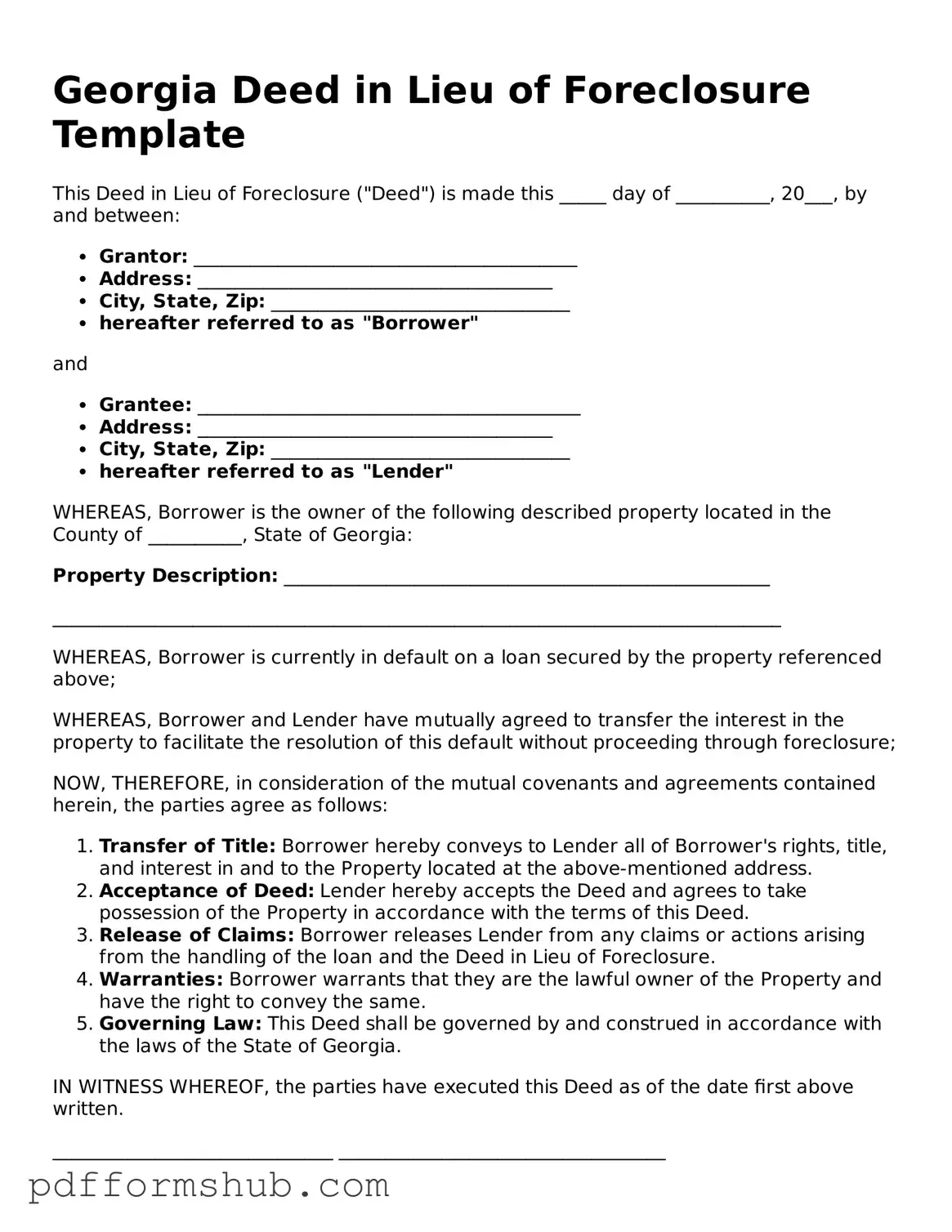Attorney-Verified Deed in Lieu of Foreclosure Form for Georgia State
A Deed in Lieu of Foreclosure is a legal document that allows a homeowner to voluntarily transfer ownership of their property to the lender in order to avoid foreclosure proceedings. This process can provide a more streamlined and less stressful alternative for individuals facing financial difficulties. If you're considering this option, you can fill out the form by clicking the button below.
Customize Form

Attorney-Verified Deed in Lieu of Foreclosure Form for Georgia State
Customize Form

Customize Form
or
Free PDF Form
Short deadline? Complete this form now
Complete Deed in Lieu of Foreclosure online without printing hassles.